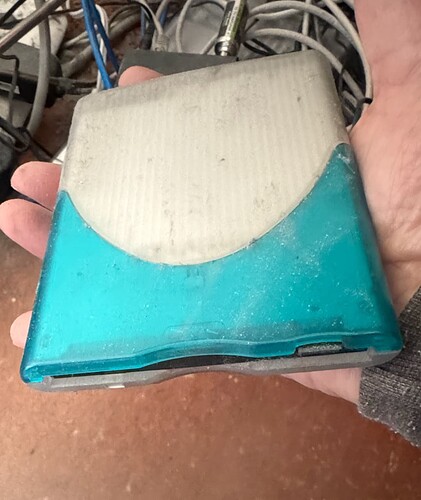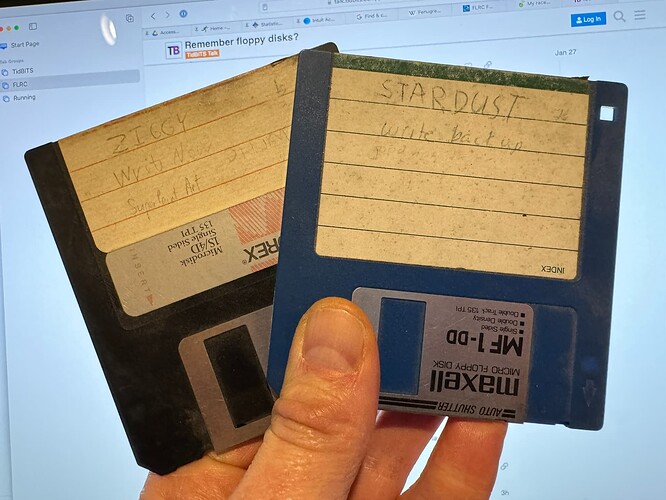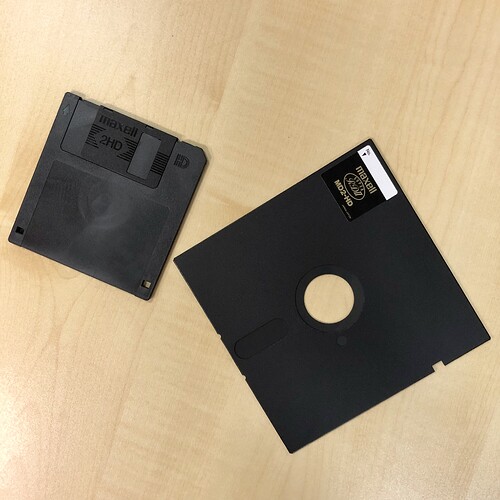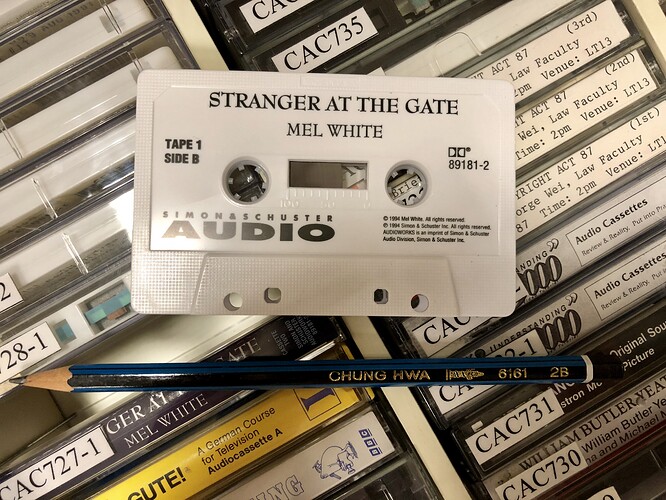From Japan Today: Ministry of Economy, Trade and Industry finally stops using floppy disks
I’ve still got drawers full of them, although why I couldn’t say. I haven’t owned anything that could read them in probably 20 years.
But apparently someone is still using them. There’s even a “Best Sellers” page on Amazon!
I know a few people who make nice livings by supplying legacy markets.
For example, there remains demand for Silicon Graphics hardware to control production machinery in the manufacturing and healthcare industries. The machinery can be prohibitively expensive for organizations to replace, so if you need an SGI system to run it, you may be very comfortable spending a surprising amount of money on vintage computer parts or systems.
Not coincidentally, some of the applications mentioned in the floppy article I linked above also use SGI equipment, such as commercial embroidery. I doubt many people think of embroidery when they think about Silicon Graphics computers that used to start at $25-30k!
Another example is commercial-grade X11 software. I recall meeting the founder of a supplier of commercial X11 server software nearly twenty years ago and chatting about the long-term prospects for selling such software into the enterprise market. The business is still running.
I still have a floppy disk reader connected to my desktop Mac. It came with several covers to match the original iMac shades.
I still have two 8" floppy disks, used for a DECmate word processor and a PDP-11.
My PowerBook G3 “Wallstreet” model has a floppy drive that still works [just tested it]. I think my oldest floppy is the installation disk for Microsoft Word 4.0a. It fits on one 800K floppy.
From Wikipedia:
I’ve still got a USB 1.44M floppy drive. Unfortunately, Apple dropped support for the old HFS (not “+”) file system a few years ago, so my modern Macs can’t read my Mac floppies. But they read my PC/FAT formatted disks just fine.
One of the reasons I keep my old Mac SE in service is so I have a working system that can read/write the 800K disk format. I occasionally download software for my IIGS and I need to be able to write that software to diskettes that the GS can read - which is only 800K (or Apple II 140K 5.25", which is even harder to deal with these days).
I have floppies for my Amiga 2000 and my Toshiba T1000. Both working last time I checked which was a few years ago…
Our University now won’t let files be saved out to anything bar uploading to OneDrive in the lab I teach on. Drives me mad but my students have no issue with it. Why did I spec all those studios with ports I can only use one way?
How beautiful to see Bondi Blue once again.
Now if only our own government could be persuaded to stop requiring use of a fax.
Interesting. I’d love to know what the rationale is.
My employer configured my work laptop to only allow saving to company servers and to encrypted storage devices. But that’s because they don’t want proprietary documents leaking out to the rest of the world.
Are universities imposing similar confidentiality rules for their projects now?
I could sort of understand not allowing content to be read from external media, to try and avoid malware (more of a concern for Windows than macOS), but preventing saving to that media seems silly unless they’re trying to prevent students from carrying off their own copies.
But in all cases, it’s not going to prevent the flow of documents either way, because anyone can just log on to OneDrive from a personal computer and share the files that way. Although I suppose that would at least leave an audit trail on Microsoft’s server which could be investigated in the event of an incident.
Yeah, I’m curious about that too. I saw a horror story on Twitter about a new PhD who’d stored all her research notes in a university account OneNote and discovered after graduation that it was locked down so there was no way to export the notebooks or move them to a personal Microsoft account.
Commercial employers have a claim on their employees’ work products, but such a claim is far weaker for university faculty and nonexistent for university students,
Dave
It can get a little complicated, especially in STEM fields. US universities generated approximately $3 billion in license revenues in 2018 through technology transfer. (I don’t have the original citation for that amount, just repetition of it in secondary sources, but it sounds right.)
In order to get that revenue, universities often have intellectual property policies that are not too different from what you see in the outside world. This is especially true now that many faculty participate in the startup economy, usually with the encouragement of their universities, something that was very rare only a generation ago.
I still have Ziggy and Stardust, the floppy disks we used as undergrads at Cornell to carry our WriteNow documents around campus for working in the public computer rooms.
Oh, good lord, I remember the DECmate. That was the first word processor I used. I wrote and stored a bunch of papers on those 5.25" floppies.
After we got a Mac to do our page layout work, we used lots of floppies. I spent far too much time backing up to 800K floppies, which eventually had to be re-backed up to 1.44 floppies, which finally gave way to Zips and then CDs. I remember that installing something like PageMaker via floppies was quite a nail-biter. 11 disks: will one of them act up after you have gotten 7 or 8 floppies into the install?
WriteNow was a lovely word processing app. I may still have files somewhere.
Sigh….
They live in terror that any material is removed from machines by folks not authorised to be there. The campus is open, anyone can enter buildings. And hordes of Russian hacker groups are attacking every week. Apart from those guys, there’s lawyers… GDPR has implications beyond cookies, confidential files, any form of information about students, all trigger GDPR cautions.
So, if they can, admin lock things down, damn the probabilities. Hence no external drives, no AirDrop… Staff laptops are probably the hardest hit. It has infuriated many technically adept staff. The majority have just gone along with things. But i know of entire programmes being run off external services like Slack, or even Facebook/WhatsApp. Which is a timebomb.
I still have two collections of floppies.
One is the multitudes of 3.5" floppies that went with my Windtunnel G4 and the Performa 636 that it replaced (the Performa got both me and my spouse through college). Still have both, though the Performa hasn’t been booted in several years.
The other is a gazillion 5 1/4" floppies that go with my old Apple //c (which got me through high school). I still have the //c, though I haven’t tried to turn it on in over 15 years, and I’d be surprised if more than a handful of the floppies are still good.
Then, if you want to go even older, while it’s not floppies, I have several cassettes and the cassette drive from my first computer, an original TRS-80 Color Computer (the first version with the chiclet keyboard), which I also still have. I haven’t tried to turn that one on in at least 20 years.
Yes, I’m reluctant to part with old computers. Does it show?
My younger colleagues did not know what these are…
And many students (who are even younger) were perplexed when they saw this (and what can you do with the pencil)…
Point them all at Techmoan. They may not learn about floppy disks, but they’ll learn about lots of antiquated A/V equipment.



